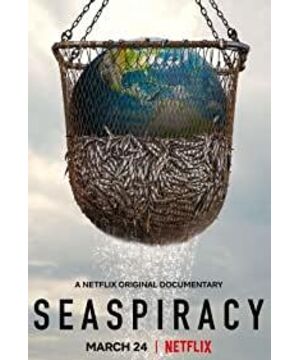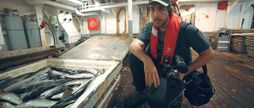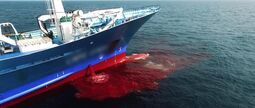The director is indeed no different from the mainstream of the West (left-wing) in terms of personal ideology, and his performance methods are also lackluster. There are actually some problems with the data. But the point of the documentary is not these, but to be able to accurately express the problem.
The problems in the film are not new to me: those standard systems in the West, how hypocritical corporate certification is - the latest example is BCI, the protagonist of the cotton incident; the industrialization of fishery brings obvious problems - the Yangtze River has been banned semi-permanently. Fishing; fishery labor environment is bad - one Lu Rongyu 2682 is enough; long-term offshore pollution has resulted in excessive heavy metals in fish; recalling that I have argued many times in some foreign forums about the source of plastics in the ocean - garbage dumping from land to sea It has never been in the majority, let alone that these problems are caused by China's development - the result has been repeatedly downvoted.
After so many years, today I basically give up arguing with people about these things.
This film, I thought it was just another one, Bai Zuo's routine operation. If it wasn't for someone to recommend it, I wouldn't watch it. The producers were able to figure out the problem in the end. To be honest, listing all of the above problems really makes me feel as if human beings can still be saved.
By the way, there is a difference between not eating commercial ocean fishing and not eating fish at all. Just not eating seafood is really not a radical proposition. It is different from eating pork, beef, and lamb. The vast majority of people in history did not eat seafood as their staple food.
There are thousands of species of marine fish with no history of domestication at all. There are only a few types of poultry and livestock, with thousands of years of domestication history. They are fully standardized to this day, so their production efficiency and product offering are more than an order of magnitude higher than the marine industry. Only a few species of fish can be farmed on a large scale, and most are freshwater fish. In the film, we mentioned farming and fishing, but we eat very little domestically. The main reason is that in the past few hundred years, we have banned the sea all the year round, and it is not a marine civilization, so we did not eat seafood in history. It is so popular now that it is the result of learning from the West. And most people in the West have only started to eat these inexplicable things in the last one or two hundred years. For example, lobsters could not be served on the dinner table hundreds of years ago. A similar Soviet ocean-going fishing fleet was the result of insufficient production of protein-related products in the 1950s and 1960s, and it did not exist before. In China, it will be even later, and it will not be available until the end of the 1980s. And strangely it became a luxury item. Because being fashionable has resulted in an industry of hundreds of billions, in my opinion, it is really funny.
The development of the ocean by human beings has only just begun, and many things still require trial and error. But the idiom with a history of thousands of years is part of our traditional culture.
View more about Seaspiracy reviews











